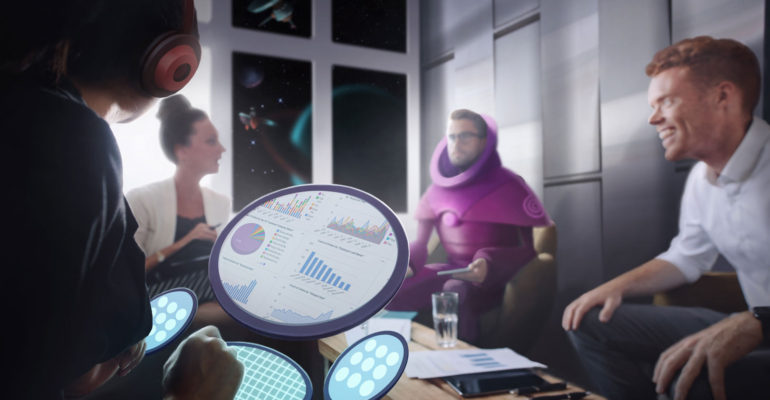“This simulation can be used as an independent experience or can “snap together” as part of the League of Stars leadership series. This series is often used across multiple days for more immersive and intensive multi-day leadership development programs.”
This is a powerful metaphorical business simulation that immerses participants in an “underwater” world in which they struggle to excel as part of a complex organizational system that mirrors their own. The Aquanauts experience is a competition between two opposing ‘schools’ or organizations, where obstacles are encountered internally, within functional siloes and up and down hierarchical organizations, setting the stage for participants to gain profound insights around how to move the company’s strategy and their projects forward within their complex systems at work.
The underwater world of The Aquanauts is crystalline and beautiful. However, when a fiercely competitive battle erupts, it is also dangerous. Soon, in both the Red and Gold Schools, miscommunication and confusion between the High Command (tops) and Pod Leaders (middles) leave the Aquanauts and Swimmers (front line workers) gasping for air.
Trust within each level and functional silo of the organization evaporates. Confusion reigns. The front line becomes isolated and is left under water without enough information or resources. High Command (leaders) are dry in their land-based offices but are isolated and overwhelmed with complexity. The Pod Leaders (middles) get pulled in two directions and start to lose themselves and their purpose. They become ineffective and feel that, in spite of their hectic activity, they are spinning their wheels. The Aquanauts and Swimmers feel left out, not understood or even seen, and ignored. They also wonder why their middle manager is always overcome with stress. A dark humor forms at the front lines about the organization itself.
What happens when information does not flow in the way its needs to, but rather in the way the organizational chart says it should? Why are resources going to average performers when the best and most capable are left gasping for more? Why can’t the people closest to the problem solve it themselves? Why can’t teams adapt as soon as they realize the need to? Why is trust so often lost across complex systems? What happens when those at the front line are disengaged, but discover new and strategically important information? How can a team and an organization adapt their culture and systems, rules and roles fast enough to succeed? These are some of the important questions that participants will come up against throughout this deeply revealing simulation.
Once the participants ‘dive-in,’ they quickly realize that the biggest challenge isn’t from the external competition. It becomes very clear that victory will go to the organization that is able to change its mindsets and behaviors around how they will relate to and work with one another; how they will optimize their internal resources, and rethink and redesign their internal systems, rules and roles.
The immediate debriefing plunges participants into a significant discussion around the power of systems, rules and roles and their effect on both culture and performance. Leaders and teams dive into exploring the steps that can move themselves and their organizations forward.
The debriefing exercises for the Aquanauts are some of the most intense, powerful and memorable that participants will ever experience in a training session. We have had many testimonials stating that the discussions with their peers in the Aquanauts debriefing leave the lessons learned resonating long into the future.

Insights: PROVEN RESULTS
The League of Stars simulation series has consistently been rated by participants as one of the most powerful training experiences they have encountered. Launched in 1999, the program continues to be experienced by thousands of managers from across the world.
Client: The Boeing Corporation
“It’s the morning after a red-eye flight – one I normally mumble through. But today is different – different energy, different perspective, and a deep appreciation for the thoughtfulness that went into the constructs of the Transition to Leader training and specifically, the Aquanauts simulation. Thank you for taking us so much further on our journey and for the reassurance that Microsoft is THE company to be a part of. The facilitators not only brought the workshop to life – they raised the potential in the room, making the learning so much more direct and real.”